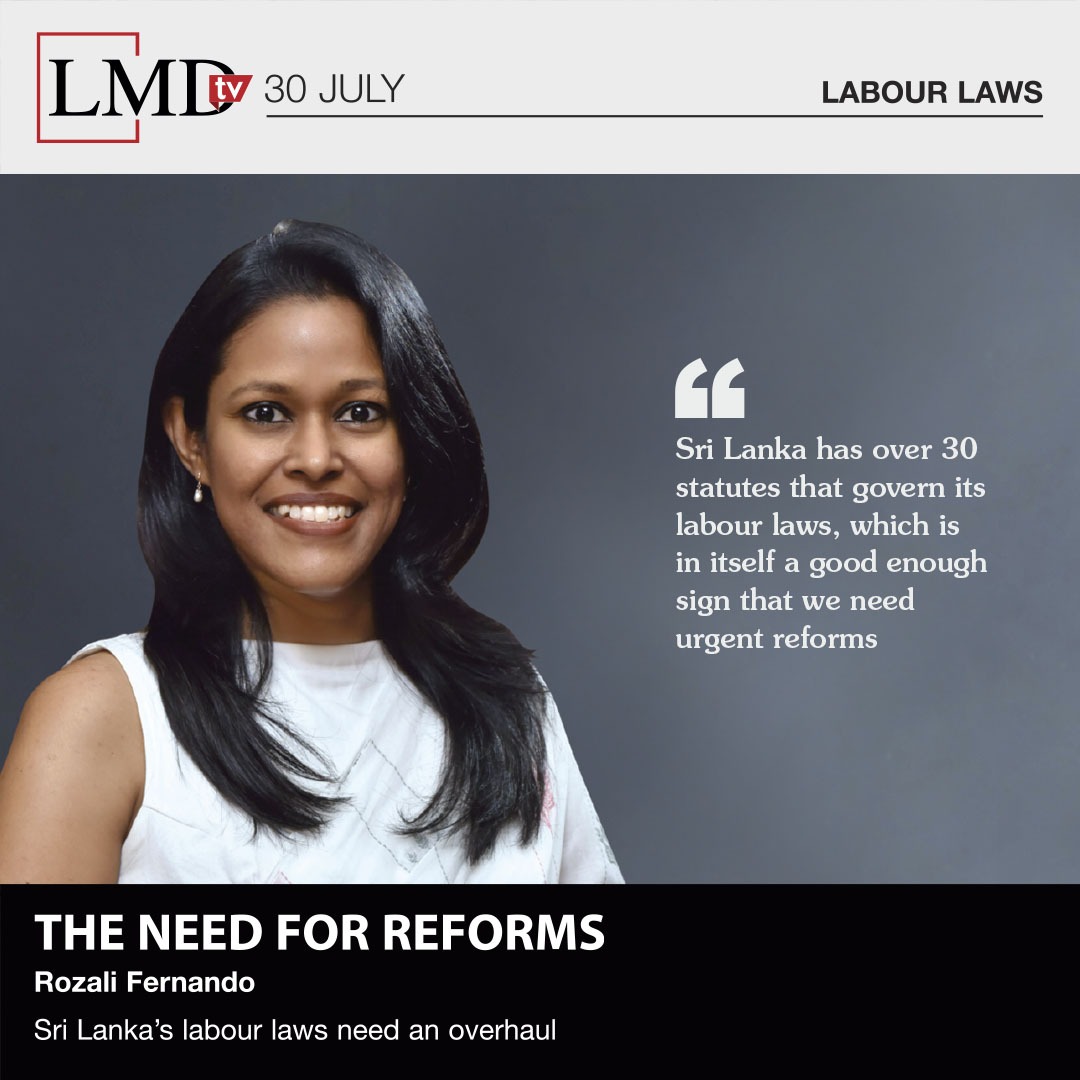LMDtv 4

Labour law reforms in Sri Lanka have been debated for years; and they’ve been freshly highlighted as an urgent and important step towards making the country more investor friendly.
“Sri Lanka has over 30 statutes that govern its labour laws, which is in itself a good enough sign that we need urgent reforms,” Counsel of FJ&G de Saram’s Rozali Fernando explained, on a recent airing of LMDtv.
She identified several key areas where reforms are required – viz. laws on dismissal, dispute resolution mechanisms, workplace harassment, discrimination and increasing female participation in the workforce.
While reforms enable economic activity in a country, there is a perception that they could negatively impact the workforce. “That’s a common misconception that many people have because our labour laws rest on the principles of justice and equity,” she pointed out.
Fernando believes that “reasonableness needs to work both ways, and must apply to both the employee and employer. When we consider people’s mindsets, there’s a possibility of objections to reforming labour laws.”
She also noted that the draft act, which has been in the pipeline for a couple of years, includes several provisions that have been introduced for the first time: “These measures are extremely pro-employee – such as paternity leave, dealing with harassment and discrimination, and unemployment insurance.”
“We can’t say that the reforms currently under discussion will negatively impact the workforce because they contain provisions that will positively impact employees. But the workforce also needs to be open-minded about accepting them,” she explained.
Another area that requires substantial reform is dispute resolution, which will also have an impact on the country’s economic activity.
Fernando explained the importance of dispute resolution from the perspective of a local employer: “If a local employer terminates an employee for whatever reason and it is challenged before a labour tribunal, and that ruling doesn’t satisfy the employee, he or she can take the appeal even up to the supreme court.”
“And subsequently, even after 15 or 20 years have passed since an unlawful termination, the employer can be required by the courts to reinstate that person under the same conditions and in the same role. Now that’s a complete logistical and administrative nightmare,” she added.
What’s more, Fernando explained the situation from the perspective of a foreign investor: “If a foreign investor asks a question such as ‘if I need to wrap up operations in Sri Lanka, can I terminate my employees?’ the answer will definitely be ‘no.’
She continued: “Even if there has been a business decision to exit from Sri Lanka, foreign investors can’t terminate their employees overnight without written consent or the approval of the Commissioner of Labour.”
Fernando elaborated: “The prevailing dispute resolution process itself is complex because under the Industrial Disputes Act, there are various mechanisms such as resolution by reconciliation, resolution by industrial arbitration and resolution by the labour tribunal. It’s a complex mechanism and often, people don’t know how to seek relief for their grievances.”
Language is another hindrance, she pointed out: “Labour tribunals predominantly use Sinhala and so foreign investors don’t feel comfortable.”
Reforms must take place for Sri Lanka to be competitive in the region. To this end, Fernando recommended several changes beginning with the unification and simplification of labour laws since “going through 30 statutes and explaining them to investors is a cumbersome process.”
In summing up, she added: “There also need to be more formalised dispute resolution procedures because currently, if a dispute has been taken up for inquiry before the Commissioner of Labour or even the labour tribunals, there is no formal code that sets out the legal procedures that need to be followed.”

